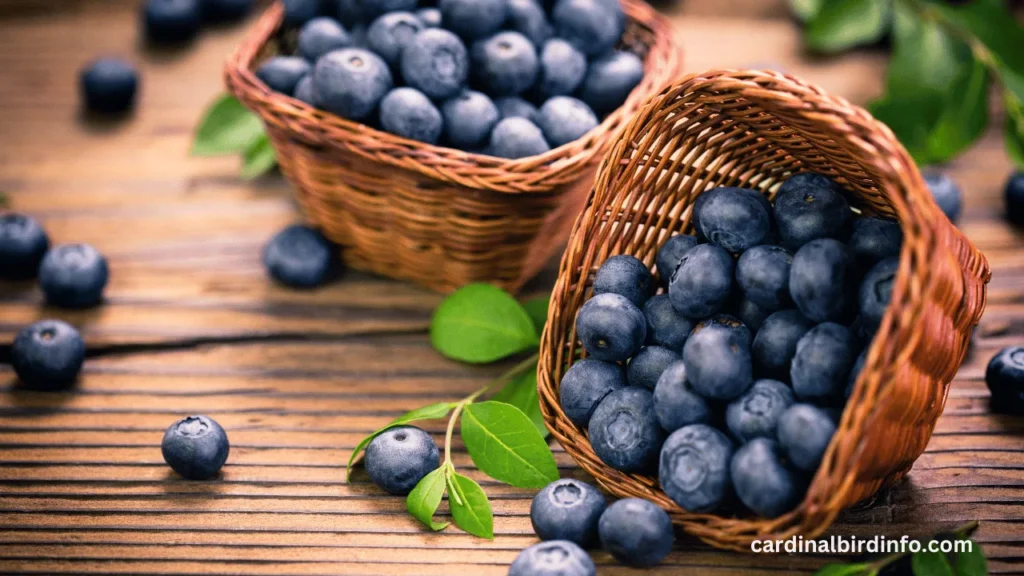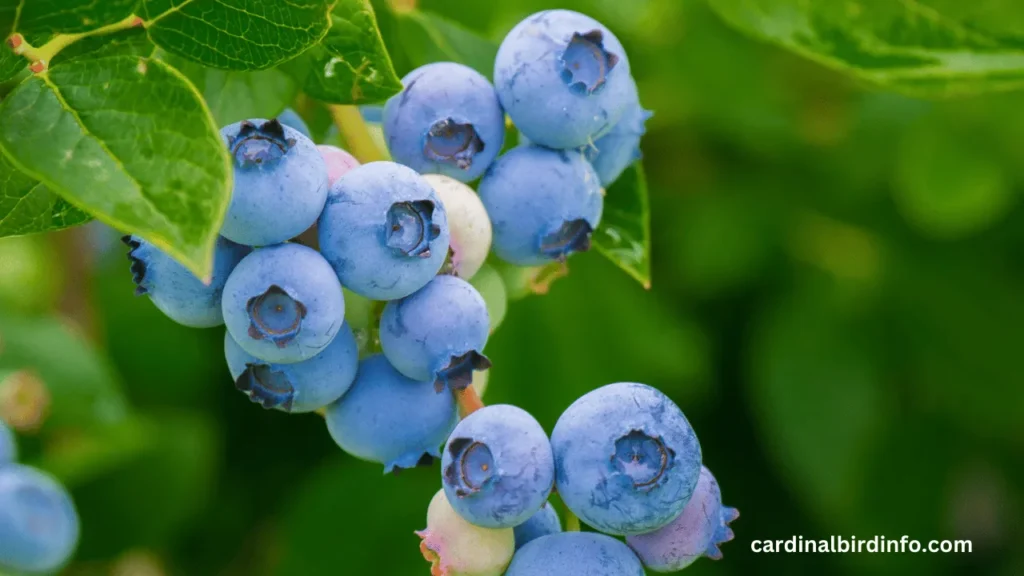The sight of a vibrant red cardinal perched against the deep blue of ripening blueberries creates an image that stops you in your tracks. But beyond the beauty of this scene lies a question: do cardinals actually eat blueberries? The answer might surprise you and open a whole new perspective on how nature works in harmony, right in your own backyard.
Understanding a cardinal’s diet is more than just knowing what they snack on; it offers insights into their behavior, health, and how you can attract these stunning birds to your garden. If you’ve ever wondered whether your blueberry bushes might lure these feathered friends, you’re not alone. Many bird enthusiasts and gardeners alike are curious about the relationship between cardinals and blueberries.
In this post, we’ll explore the cardinal’s diet, the nutritional value of blueberries, and what it all means for your garden. Whether you’re trying to invite more birds to your backyard or simply fascinated by how birds interact with their environment, this is a topic worth diving into. Stay with us as we explore the fruit-filled world of cardinals and discover the beauty of nature’s hidden connections.

Contents
- 1 Cardinals’ Diet:
- 2 Nutritional Value of Blueberries:
- 3 Interaction Between Cardinals and Blueberries:
- 4 Potential Drawbacks:
- 5 Conclusion:
- 6 FAQs
- 6.1 1. Do cardinals eat blueberries?
- 6.2 2. Are blueberries safe for cardinals to eat?
- 6.3 3. How often do cardinals eat blueberries?
- 6.4 4. Can I feed blueberries to cardinals at my bird feeder?
- 6.5 5. Do cardinals prefer blueberries over other fruits?
- 6.6 6. How can I attract cardinals to my garden with blueberries?
Cardinals’ Diet:
Cardinals are known for their diverse diet, which includes insects, seeds, and fruits. They particularly enjoy munching on sunflower seeds, safflower, and grains. During the warmer months, cardinals also feast on various insects, such as beetles and caterpillars, providing them with the protein they need for energy and survival.
When it comes to fruits, cardinals aren’t picky. They’ve been observed enjoying grapes, mulberries, and even serviceberries. They have a sharp beak designed for cracking open seeds and pecking at soft fruits, which allows them to access the juicy flesh hidden inside.
Cardinals’ dietary habits also shift with the seasons. In the winter, they rely heavily on seeds and dried fruits to survive, while during the breeding season, they require more protein and energy, leading them to seek out insects and nutrient-rich food sources.
Nutritional Value of Blueberries:
Blueberries are packed with antioxidants, vitamin C, and fiber, making them a nutrient-rich treat not just for humans but potentially for birds too. These little berries are known for promoting better vision, cognitive function, and immune system health in various species, including birds.
The high concentration of antioxidants in blueberries helps reduce oxidative stress, which is especially important for birds during stressful periods like migration or breeding. Meanwhile, the fiber content aids digestion and ensures smoother gut function, which is crucial for maintaining energy levels and overall health.
For cardinals, the vitamins and minerals in blueberries could offer significant health benefits, complementing their insect and seed-heavy diet. These berries might be more than just a colorful addition to their meals – they could enhance their well-being and survival.

Interaction Between Cardinals and Blueberries:
If you’re looking to attract cardinals to your garden, planting blueberry bushes might be a great start. These birds are drawn to areas rich in fruits, and offering a natural food source like blueberries can make your yard a welcoming space for them.
Several birdwatchers and studies have noted cardinals pecking at ripe blueberries, showcasing their taste for this superfruit. This interaction not only benefits cardinals by providing them with a nutrient boost but could also benefit blueberry plants by helping with pollination and seed dispersal.
By encouraging cardinals to feast on blueberries, you’re fostering a mutually beneficial relationship that supports the health of both the birds and the plants. Plus, watching cardinals nibbling on these berries is a joy for any nature lover!
Potential Drawbacks:
While inviting cardinals to your garden sounds idyllic, there are some drawbacks to consider. One potential issue is competition with other bird species that may also be attracted to your blueberries. Birds like robins or mockingbirds might challenge cardinals for these tasty treats.
Another concern is the possible damage to blueberry plants. Cardinals, in their excitement, might peck at the fruits before they’re fully ripe, which can lead to a reduction in your overall berry harvest. Keeping an eye on how much they consume might be necessary to strike the right balance.
Conclusion:
In summary, cardinals do eat blueberries, and this interaction brings potential benefits to both the birds and the plants. From improved health for the cardinals to enhanced pollination for the blueberry bushes, there’s more going on than meets the eye.
Protecting cardinals and their natural habitat is crucial to preserving these vibrant visitors and ensuring they thrive. Whether through planting blueberry bushes or supporting conservation efforts, your actions can make a difference.
So why not try it yourself? Plant a blueberry bush, watch the cardinals arrive, and witness this beautiful connection between birds and berries right in your backyard!
FAQs
1. Do cardinals eat blueberries?
Yes, cardinals do eat blueberries. While they primarily feed on seeds and insects, cardinals are known to enjoy various fruits, including blueberries, particularly when they are ripe and abundant.
2. Are blueberries safe for cardinals to eat?
Blueberries are safe and healthy for cardinals to consume. They provide essential nutrients like antioxidants, vitamin C, and fiber, which can benefit their overall health.
3. How often do cardinals eat blueberries?
Cardinals may not rely heavily on blueberries as a main food source, but they do eat them when available, especially during the fruiting season. Their diet shifts seasonally, so they may consume more blueberries in late summer and early fall when fruits are plentiful.
4. Can I feed blueberries to cardinals at my bird feeder?
Yes, you can offer fresh or dried blueberries at your bird feeder to attract cardinals. It’s a great way to provide them with a natural fruit source. Just ensure the berries are ripe and clean to avoid harmful substances.
5. Do cardinals prefer blueberries over other fruits?
Cardinals do not have a specific preference for blueberries but enjoy a variety of fruits, such as grapes, mulberries, and serviceberries. They will eat blueberries if available, but they are not a top priority compared to seeds and insects.
6. How can I attract cardinals to my garden with blueberries?
Planting blueberry bushes in your garden is an effective way to attract cardinals. The natural food source will entice them, especially during the fruiting season. Ensure the environment is safe and provides cover, as cardinals prefer areas with dense vegetation.








